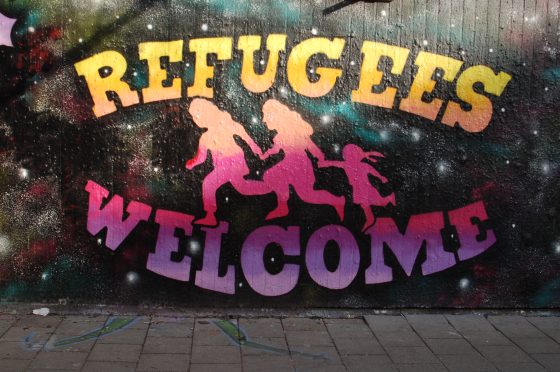
Save the Children in Sweden publishes an annual report on Transforming Care. In May, I translated the Swedish original into English for the second year in a row. This report covers their nationwide efforts to help adults deal with children who have suffered from trauma.
Reading between the lines of the 2016 and 2017 reports, though refugee children are now in safe-keeping in Sweden, many of them are still suffering mentally from the ravages of war.
In 2015, Sweden took in a record number (162,900) of refugees fleeing from the war in Syria and the conflicts in Afghanistan and Iraq. Many of them were under 18 and arrived alone – official statistics for 2015 put the total number of unaccompanied child refugees at 35,369 – two-thirds of whom came from Afghanistan.
Save the Children is a civil society movement that fights for the rights of children. Child refugees are one of the groups prioritised by them and one of the ways they help is through their Transforming Care programme in Sweden.
In 2017, the Swedish Transforming Care team consisted mainly of psychologists and social workers with wide experience of trauma care who give training courses and seminars. During 2017, the team met teachers, carers at residential homes, social workers, child counsellors and many other people whose work is dedicated to making vulnerable minors feel safe and supported.
Transforming Care is a research-based approach that Save the Children uses in Sweden to guide adults to understand and meet the basic needs of children and young people who have suffered serious traumatic events. This approach has been developed by the Australian psychologists Howard Bath and Diana Boswell who have long experience of working with children and young people exposed to trauma.
Based on research into the difficulties that may affect these young people, they have come up with the “Three Pillars” approach. Transforming Care training addresses these three primary needs that should be fulfilled in caring for and supporting young people who have been exposed to various types of trauma:
- the need to FEEL SAFE;
- the need for positive, trust-based CONNECTIONS with caring adults and engagement with the broader community;
- the need for support to enable adaptive COPING with external life circumstances as well as turbulent thoughts, emotions and impulses.
To quote from the 2017 report: “Transforming Care is based on the knowledge that a large part of the healing process for a traumatised child or adolescent takes place in their everyday environment and in contact with the influential adults around them.”
You can download the full report here.
By Peter Goddard
